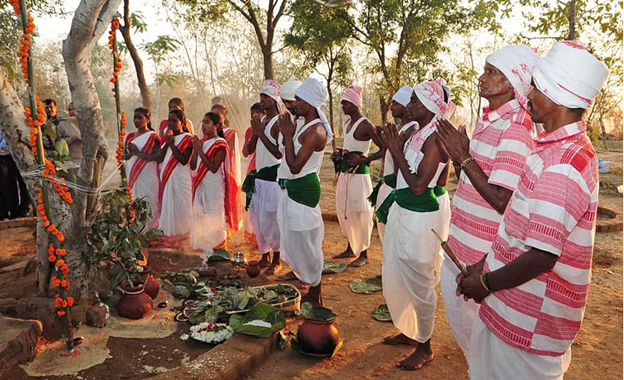Being Sarna: a fight to define tribal identity in Jharkhand
- Posted By
10Pointer
- Categories
Polity & Governance
- Published
23rd Jul, 2022
-
Context
The demands for a Sarna religious code in Census 2021 are on rise in Jharkhand.

Key-points
- In 2020, the Jharkhand General Assembly passed a resolution demanding a separate ‘Sarna Code’ for Tribals.
- The resolution will seek a special column for the followers of Sarna religion in Census 2021.
- The Sarna religion followers are worshippers of nature.
- They do not consider themselves as Hindus.
- They have been fighting for a separate religious identity for decades.
- Currently, Sarna is not classified as a separate religion.
What is the Sarna religion?
- The holy grail of the faith is “Jal, Jungle, Zameen” and its followers pray to the trees and hills while believing in protecting the forest areas.
- It is believed that 50 lakhs tribal people in the entire country put their religion as ‘Sarna’ in the 2011 census, although it was not a code.
Issues
- Many of the tribals who follow this faith have later converted to Christianity—the state has more than 4% Christians most of whom are tribals.
- The issue now is that the converted tribals are taking the benefits of reservation as a minority as well as the benefits given to Schedule Tribes.
- So, those who are still following only Sarna faith say that benefits should be given specifically to them and not those who have converted.
Claims by Sarna Tribes
- There was a separate Sarna Code between 1871 and 1951.
- However, it was removed in 1961 due to conspiracy.
- Also, in 2011 the National Commission for Scheduled Tribes recommended adding Sarna Code in the Census.
- However, this recommendation was not implemented.
Schedule V of Constitution of India
- The Schedule V of Constitution of India deals with control and administration of Scheduled Areas and scheduled Tribes residing in states other than Meghalaya, Assam, Mizoram and Tripura.
- In Scheduled areas the central government plays a direct role in safeguarding the economic and cultural interests of scheduled tribes.
